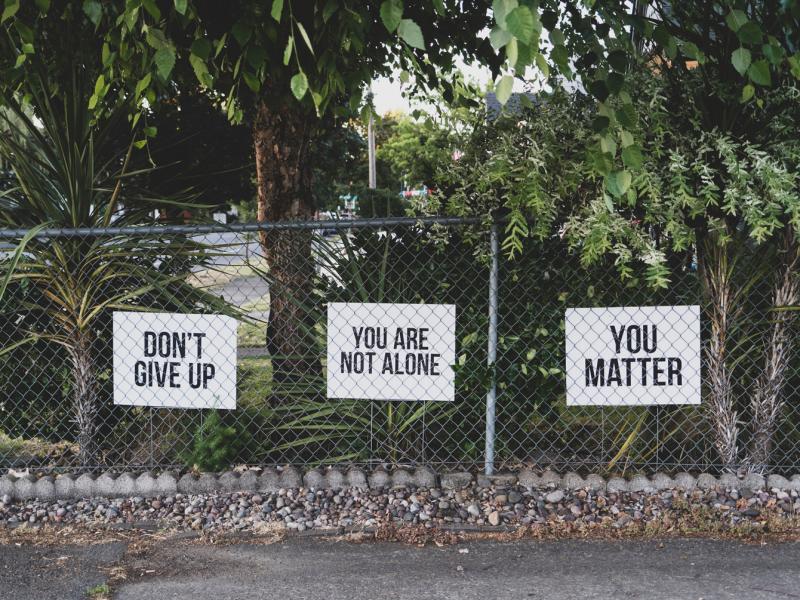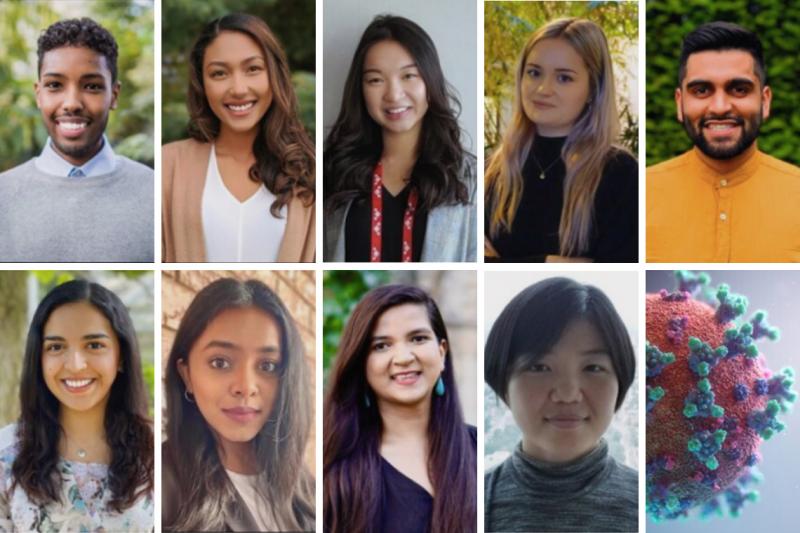July 29, 2020 | Alumni
U of T alumni build tool to track availability of resources in Toronto communities hardest hit by COVID-19
By Françoise Makanda

Photo by Dan Meyers on Unsplash
Recent grads from the University of Toronto are reaching out to help Toronto neighbourhoods with higher rates of COVID-19 and fewer resources and services.
“There is a clear and emergent need to support communities disproportionately impacted by COVID-19 and its associated socioeconomic ramifications,” said Kahiye Warsame (MPH 2020).
Warsame, an alumnus of the master of public health program at U of T’s Dalla Lana School of Public Health, is co-lead of a group known as the Infectious Disease Working Group. The group’s founders – which also include Yulika Yoshida-Montezuma (MPH 2020), Ashley Mah (MPH 2020), Camilla Michalski (MPH 2020), Anindita Marwah (BSc 2018 NEW, MPH 2020), Maura Eswaradas (BSc 2017 UTSC, MPH 2020), Nousin Hussain (MPH 2020), Kathleen Qu (MPH 2020) and Harsh Naik (MPH 2020) – came together as students early in the pandemic and have continued their work as alumni.
Their latest endeavour is a resource tracker: ReConnect, a tool that helps users find essential supports in their communities for mental health, employment, training and child care.
“Our tool aims to bridge the gap in navigating social care systems by centralizing available services and supports on one platform,” said Warsame, who graduated from the social and behavioural sciences stream at Dalla Lana.
“This is clearly systemic racism permeating through our city that the government needs to address”
The tracker, to be presented at a July 28 webinar, highlights the uneven distribution of social resources across Toronto, showing how areas outside the downtown core have higher rates of COVID-19 cases but fewer resources and services.
“If you look at these areas in Toronto where there are fewer resources but greater COVID-19 case rates, they are also the neighbourhoods with a higher proportion of Black and racialized communities, a higher proportion of low-income earners and unsuitable housing, higher rates of chronic illness and poor mental health,” said Naik, who recently graduated from the epidemiology stream. “This is clearly systemic racism permeating through our city that the government needs to address.”
The group partnered with 211 Toronto to compile the tracker.
“It’s one thing to say, ‘Look, Toronto has a lot of different resources and you can reach out – it’s just a phone call away or it’s right by a transit line’ – but it’s really different to see it geographically distributed,” said Qu, who also graduated from the epidemiology program. “You’re able to pick up more of the gaps in the physical barriers that are presented or even the cultural and social barriers between different neighbourhoods.”

To fill those gaps, the alumni have been working with community-led groups such as CareMongering to include additional informal services, updating the tracker as more services become available. The group’s community engagement team – Evelyn Ascencio (MPH 2020), Joseph Burley (MPH 2020), Tara Faghani (MPH 2020), Vhil Castillejos (BA 2018 SMC, MPH 2020), Mauriene Tolentino (BSc 2018 UTSC, MPH 2020), and Yasmin Sheikhan (MPH 2020) – worked with stakeholders to ensure the tool is distributed and used widely. With enough support, the group says, it would be interested in expanding the tracker to all of Ontario.
“The Working Group is a collaborative effort that includes students from epidemiology, social and behavioural health science, occupational health and Indigenous health,” said Yoshida-Montezuma, a graduate of the epidemiology stream.
“It’s a very interdisciplinary group. We want to help dispel myths, raise awareness and promote health equity through the various committees that we have including knowledge translation and community engagement.”
“We realized that social distancing was the new norm and it was going to take a huge mental health toll”
Mah, Michalski, and Hussain have focused on developing educational content and communication strategies, with the help of first-year students. With a strong sense of what’s needed and relevant, they pitch timely themes, Hussain said, turning them into informative and neatly-designed social media posts on a wide range of topics – from how to run safely in the city to the proper use of personal protective equipment.
“At the beginning of the pandemic, as everyone was talking about numbers and the fatality rate,” Hussain said. “We realized that social distancing was the new norm and it was going to take a huge mental health toll.”
The first-year students source the content and the group takes audience requests. An external resource may be used to vet content before publication if additional expertise is needed, said Mah.
The material has also been used to develop an educational toolkit to reach an even wider audience.
“How do we use appropriate language when we’re talking to our audience? How do we make the message clear, concise and easy to understand? I’m sure that a lot of our team would say that it’s been a great learning experience to be able to create these posts,” Mah said.
“It’s time for this group to flourish with the next generation of students”
Marwah and Eswaradas have focused on screening and summarizing in lay terms the most recent and relevant scientific literature on COVID-19, for use in articles.
Marwah and first-year students have also collaborated with outlets across Toronto to publish op-eds written from the students’ perspective about important pandemic-related topics, such as student mental health.
In the coming weeks, the group will be hosting a webinar on the resource tracker to showcase its added benefits and involve more stakeholders. The team is also organizing a virtual conference that will bring together field experts and community leaders to delve further into topics such as the social determinants of health and mental health and COVID-19.
The group’s founding members, many of whom have taken roles in public health organizations and hospitals, will be moving into advisory roles after the summer. Hoping to pass the baton, they’re accepting applications for the next cohort of students who would like to learn more about infectious diseases and health equity.
“It’s bittersweet to see how far this group has come but also to recognize that it’s time for it to flourish with the next generation of students,” said Yoshida-Montezuma. “We would like to promote the group or to get an even larger collection of people who would like to be involved.”